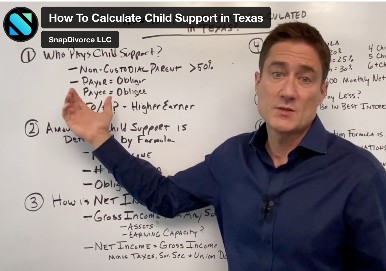
Communicating with Your Spouse in Divorce: How it Affects Your Children’s Health
Before, during, and after making the decision to file for divorce, parents’ number one concern is often, “How will this affect my kids?” The simple answer is . . . it depends. Each child reacts differently to their parents’ divorce, making the waters difficult to navigate. Although each situation is unique, the number one thing to keep in mind is to let your child’s voice be heard.
As Divorce Mediators, our goal is to make the divorce process as amicable and stress-free as possible. Therefore, we offer the following tips and advice to help foster positive communication between you and your (ex)spouse.
Conflict, more than the divorce itself, is what negatively affects children
You may fear that your divorce will affect your children for the rest of their lives, and although it is possible, it doesn’t have to be the case. Studies show, children are not impacted by the divorce per say, but more so the conflict that is created between the two parents. Children who have parents who never get divorced, yet are constantly bickering, are just as negatively impacted as those who have divorced parents. It is important to notice: communication is key.
Avoid the tug of war, and don’t put your children in the middle
The worst position to put your child in is the middle. Children who are often placed in a tug of war situation between their parents often develop feelings of resentment and frustration. The feeling of being stuck can come from the most minor request. Something as simple as one parent asking their child to remind their other parent of a dentist appointment can leave them feeling like a mediator. This small, yet crucial, lack of communication creates hostility. This confusion can lead to the child siding with one parent over the other or shutting down altogether. Therefore, it is important to recognize your child as being independent of your divorce.
Parental conflict can affect your children mentally and physically
Tamara Afifi conducted an experiment to measure the level of stress a child felt when discussing their parent’s previous disagreements. The results showed that when children relived their parent’s conflict, their bodies underwent a severe amount of stress. This stress caused the children to experience severe stomach pain, an increase in heart rate, and even headaches. Although children may seem to be unaffected on the outside, it is quite possible their body is experiencing something very different.
Clear communication is the key to minimizing your child’s stress
Communication. Children simply want to be heard, even if they aren’t being upfront and vocal. It is important to observe how your child reacts in high- stress situations and to talk to them about how they are feeling. Make the time to talk to your children about divorce in a neutral and non-confrontational manner. This will reinforce that you both understand your child and that you do not expect them to be involved. Communication is not only important between you and your child, but between you and your spouse as well. Following a divorce, it essential that you take the time to redefine your relationship. You are no longer a married couple, but you are co-parents. Define what that means for you, and set ground rules about how you plan to communicate with each other and your children. Creating boundaries avoids unwanted confrontation and enforces a calm environment.
If the other parent won’t cooperate, do your best to remain calm and civil
Civil and effective communication with your spouse is easier said than done. Not all conversations will go as planned, and if this is the case it is important to focus on diffusing the emotion in the situation. Whether this is done by emailing or texting rather than speaking face to face, or simply ignoring the backlash, it is important to stay calm and collected. Of course, this will benefit you, but also your children. Children often respond well to civil behavior and in the long run, they respect that their parents didn’t give in to that kind of behavior. Visit “How to Talk to Your Spouse about Divorce” for more tips.
Related Articles

Don’t blow
everything for
the sake of
revenge.
Find out how SnapDivorce® can help you simplify your divorce.


